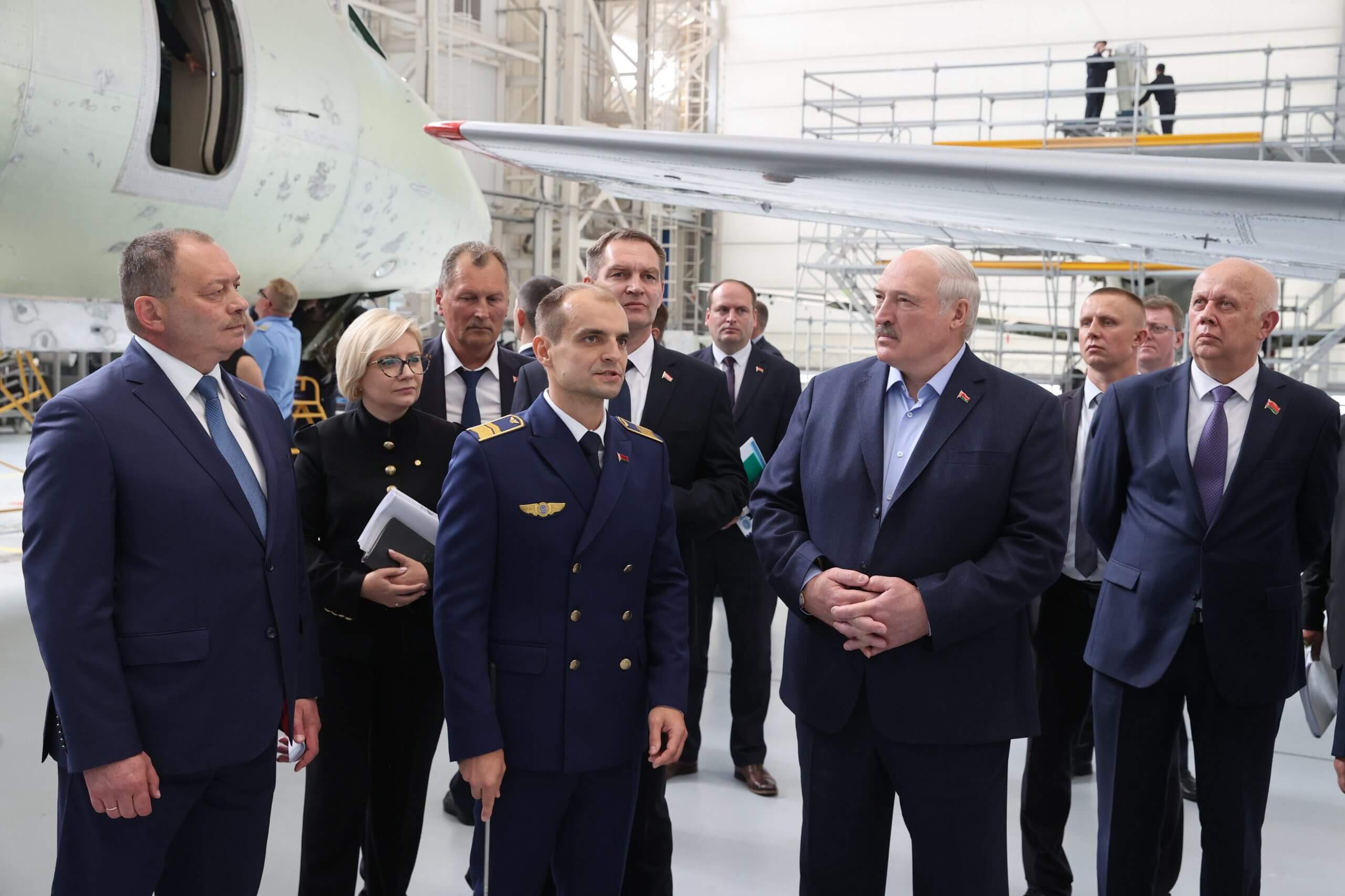
One week after threatening to unleash Wagner Group mercenaries on Poland, Alaksandar Łukašenka said that it was a joke and expressed readiness to restore relations. The Belarusian ruler realizes that an escalation may cost him dear.
Caution from Beijing?
Warsaw responded to Minsk’s recent anti-Polish tirades by deploying additional troops to the eastern border and reaching out to Lithuania and Latvia to discuss possible border closure.
The move has had a sobering-up effect on the Belarusian leader. Border closure would not only harm the Belarusian authorities’ business interests, it would also cause economic damage to Kazakhstan and China, whose goods transit Belarus. Warsaw maybe expecting Beijing to caution Minsk.
Beijing may have cautioned Minsk already. That might be the reason Łukašenka backpedaled.
Wagner mercenaries give neighbors jitters
Although China’s influence is important, other factors also have had an effect on the Belarusian strongman.
The European Union (EU), United States and several countries tightened sanctions against Minsk earlier this month in a move that was long overdue, in the opinion of Belarusian opposition politicians. Although measures might have fallen short of their expectations, sanctions exert pressure on the economy and the quantity of restrictions can eventually translate into quality changes.
Not surprisingly, Łukašenka told workers at an aircraft repair plant in Minsk on August 11 that Belarus “should not forget about the high-tech West.” Sanctions have hit the aviation industry hard. Besides, the technological gap may start to weigh on the economies of Russia and Belarus in a few years.
Meanwhile, uncertainty lingers over who pays for Wagner mercenaries relocated to Belarus. Łukašenka might have discussed some arrangement with Putin when the two met in St. Petersburg last month. The Institute for the Study of War suspects that the deal between Łukašenka, Putin and Wagner chief Yevgeny Prigozhin has collapsed, and that the mercenaries may soon return to Russia.
Łukašenka would be happy to see them leave for Russia or Africa. The Belarusian leader, despite his anti-Western rhetoric and worldview, realizes that incidents involving Russian mercenaries can backfire.
What Łukašenka can do to defuse tension with Poland
First, it is unclear what Prigozhin is about and what plans Putin has for the Wagner Group. What is clear is that Łukašenka has little or no influence on what will happen to the private military company.
Second, Warsaw, Vilnius and Riga are really concerned about the migrant crisis. Illegal border crossings soared in the last six months. If attempts decrease in the coming weeks, it would be a sign that Minsk might be looking for a compromise.
Third, Minsk can release jailed Polish minority leader Andrej Pačobut (Andrzej Poczobut). Warsaw seems to be conducting behind-the-scenes talks with Belarusian officials on the matter, but the sides have not yet reached a deal. Minsk may eventually show some flexibility. Basically, Łukašenka is reluctant to release any political prisoners. He wants to send a strong message to the public: if you rise against me you will never get out of prison.
The regime and Belarusians are starting to feel the pain as a result of an escalation of Minsk’s standoff with the West. Łukašenka would be happy to compromise, but he is reluctant to free all or many political prisoners for fear that concessions might energize his opponents and the political climate may turn sharply against him.
During earlier spats, the United States and EU suspended sanctions only after he freed all political prisoners.
Most importantly, his reliance on Moscow prevents him from taking any independent decisions without its blessing, while the Kremlin is absolutely genuinely interested in Minsk’s estrangement with the West.